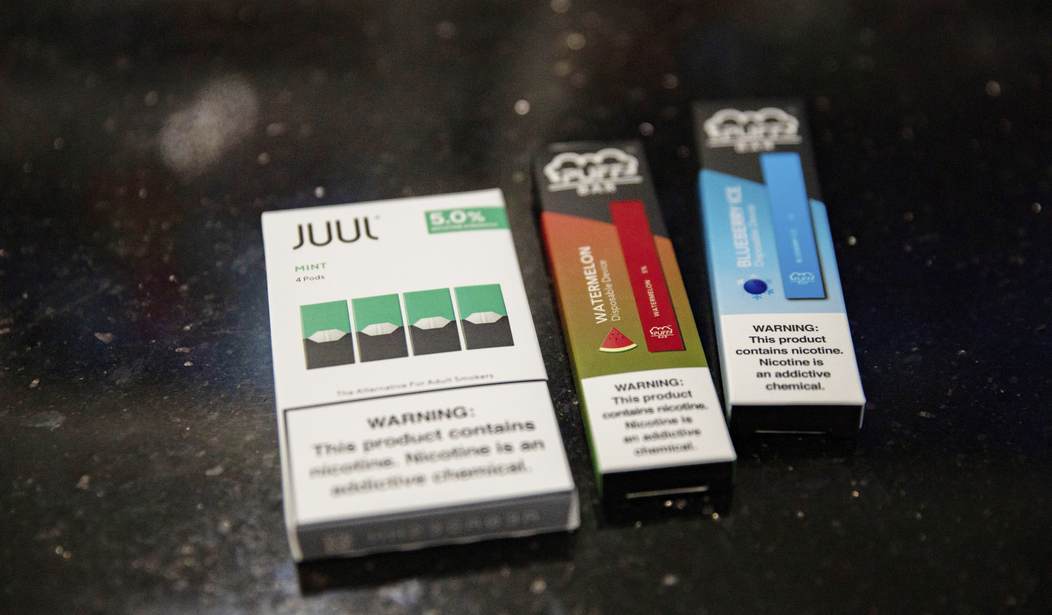Much like the then-celebrated state attorneys general's “win” against the tobacco industry in the 1990s, more state attorneys are cheering another so-called win against JUUL Labs Inc. (JLI) after 32 states and one territory reached a tentative settlement regarding the company’s marketing of their e-cigarette JUUL.
Since 2018, JLI has come under intense scrutiny from a plethora of policymakers and regulators as its novel tobacco harm reduction product took over the market place. While todays AGs are quick to declare victory, it is truly a sad day for tobacco harm reduction and public health. And, in a weird twist of fate, it is becoming increasingly apparent that tobacco and vapor companies are more interested, and are spending more, in reducing combustible cigarette use.
For example, JLI will pay the states in the recent settlement $438.5 million. Unlike the 1990s tobacco settlements that require tobacco manufacturers to pay states annual payments in perpetuity, JLI will be dispersing annual payments to each respective state for either six or 10 years.
Some states, such as Connecticut, are planning on using the e-cigarette maker’s money for “cessation, prevention and mitigation.”
Previously, some had been hopeful that the states would use their tobacco moneys from the 1990s settlements to do that. Yet, every year the states receive billions of dollars from the lungs of people who smoke and spend that money on everything but tobacco control programs, including property tax relief, fixing budget shortfalls, and even funding state retirement programs.
Recommended
State spending on youth tobacco and vaping prevention is so low that seven states that have settled their claims against JLI will receive more money from the e-cigarette manufacturer than their state invested in those programs over the past six years.
Connecticut, Oregon, and Texas led the most recent settlement. Since 2017, Connecticut has allocated $0 in state funding towards tobacco control programs. In fact, 2016 was the last year the state spent any of its own money on preventing youth vaping, and even then, it was an abysmal $1.2 million. JLI is to pay Connecticut $16.2 million.
All in all, Connecticut, Kansas, New Hampshire, North Carolina, Tennessee, Texas, and Washington will receive at a minimum $152.8 million from JLI, yet, in the past six years, the states have only spent $81.3 million on tobacco control programs that could have helped stymie the supposed “youth vaping epidemic.”
It is an ironic day for public health when an e-cigarette manufacturer will be giving more money to youth vaping prevention than the respective state, but the true irony is the demonization of the JUUL e-cigarette – and all tobacco harm reduction products – which have led to significant declines in smoking rates in these states.
Connecticut, which spends very little on tobacco control programs, has seen young adult smoking rates plummet since the introduction of e-cigarettes. Since 2016, when JUUL’s market emergence started to surge, smoking rates among aged 18- to 24-year-olds in the First State has declined by 48.9 percent, with an average annual decrease of 5.3 percent.
To date, of all the state settlements, North Carolina seems to have got the best deal by being the first state to settle with JLI. The Tarheel State is expected to receive $40 million from the e-cigarette maker over the next six years, a significant amount more than the $11.3 million the state spent on tobacco control between 2016 and 2021. And, like Connecticut, the introduction of e-cigarettes has led to significant declines in smoking rates among 18- to 24-year-olds in North Carolina. Since 2016, young adult smoking rates have decreased by 50.3 percent, with an average annual decrease of 15.3 percent.
Ultimately, the JLI settlement is another blow for harm reduction. Despite the media headlines, youth vaping has significantly decreased since 2019. In fact, in 2021, only 11.3 percent of high school students reported using any e-cigarette product in the past 30 days, or 1.74 million students. In 2019, 27.5 percent had used an e-cigarette, or 4.13 million students. Essentially, between 2019 and 2021, there were 2.4 million fewer high school students vaping.
Perhaps the e-cigarette maker’s money can help to encourage states to invest more funding towards tobacco control. As states continue to demonize tobacco harm reduction products and makers, it is apparent tobacco and vape companies are doing the better job at reducing smoking rates among youth and young adults.
Lindsey Stroud is Director of the Taxpayers Protection Alliance’s Consumer Center.

























Join the conversation as a VIP Member